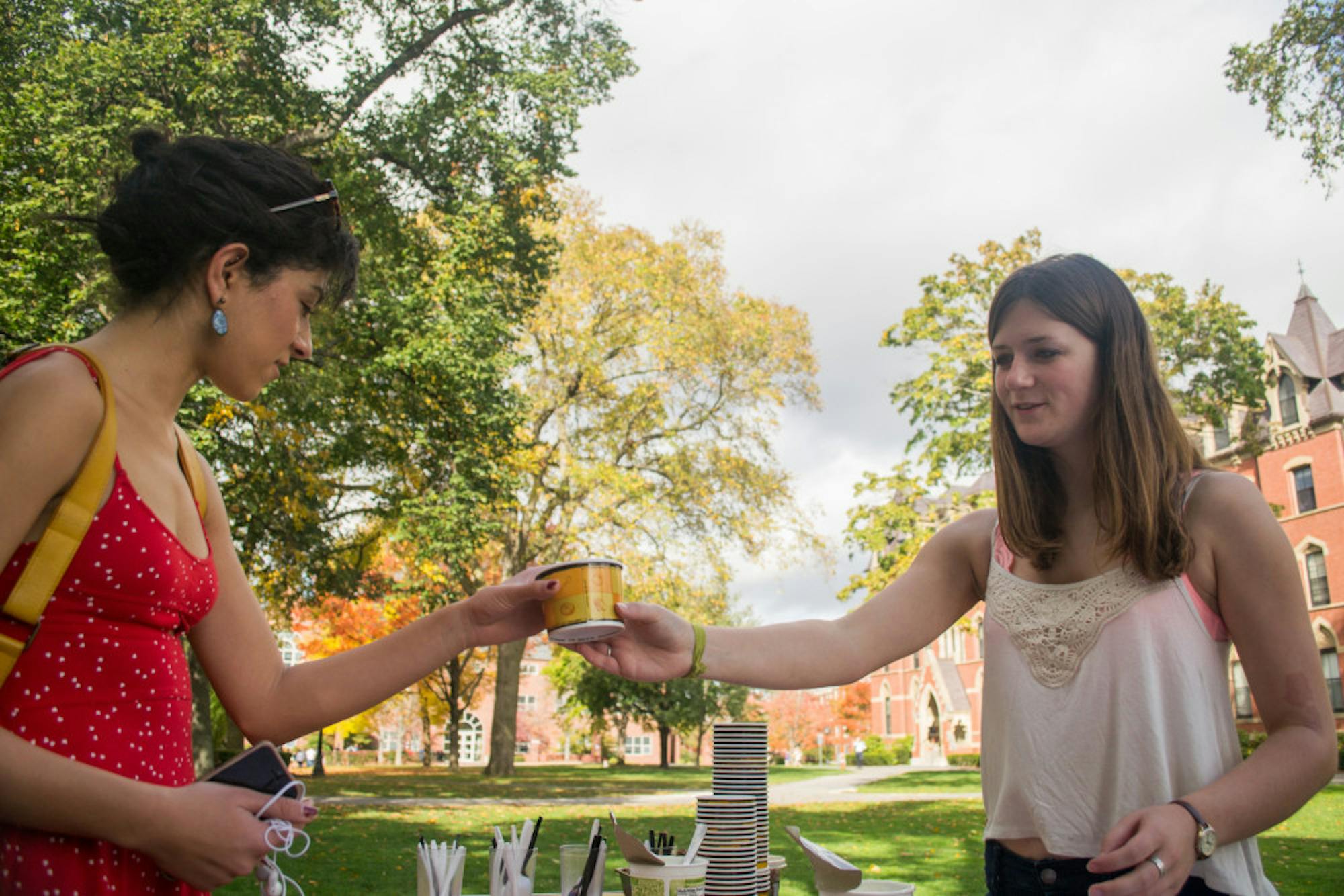Tufts Food for Thought, in conjunction with the Tufts Sustainability Collective, held their annual Food Week from Oct. 13 to Oct. 17. The week featured a robust schedule of events to promote food consciousness and encourage students to take sustainable measures as consumers.
First held in 2012, Food Week has typically occurred later in the semester to correspond with Massachusetts Food Day, according to Food for Thought member Juleen Wong. This year the event was held in conjunction with Sustainability Week.
“The goal [of holding Food Week and Sustainability Week at the same time] was to give freshmen and everyone else on campus an idea of what Food for Thought does, the issues we talk about and the kinds of events we'll hold in the future," Wong, a sophomore, said.
Wong described Food Week as a unifying force to bring together like-minded Tufts community members who are interested in sustainable living.
“It was actually a really good networking opportunity for people within the sustainability clubs who are already aware about this kind of stuff,” she said.
Food for Thought presented a wide array of events to appeal to a broad range of students, including a film screening of "Food, Inc." (2008), a documentary that examines the food industry on a corporate level, Munch Crunch Brunch, a midday make-your-own parfait and granola stand and the Edible Campus Tour, an exploration of the edible, on-campus flora led by Associate Professor of Biology George Ellmore.
The events boasted strong student attendance, according to Food for Thought President Ellie Doyle.
"[The turnout] was pretty good actually. I was impressed," Doyle, a sophomore, said.
Doyle and Wong explained that Food for Thought organized discussions and group brainstorms where the group agreed upon what events to hold, based on the audiences they hoped to appeal to directly and the messages they wanted to convey. Putting together the actual events demanded collaboration and effective communication from the members.
"It was definitely a group effort," Doyle said. "On some events, we had a point person, like the Raisin Meditation was led by Sophia Goldberg, and she did almost all of the planning … in other cases like the Munch Crunch Brunch, we pretty much divided up the tasks … Most of the events were pretty evenly divided I would say, especially the big ones.”
For Doyle, another critical aim of Food Week was to make food consciousness a more accessible topic for students on campus. She noted the prevalence of students who have the drive to engage in more sustainable food practices but lack the ability to bring any changes to fruition.
“[The campus is rife with] people who want to think about what they're eating or what they are purchasing in terms of food and don't know how to or don't have access to the information or they don't know what to do with the information once they have it," Doyle said. "And I think that is really exciting for a group like Food for Thought because it means that … we have a large group of people who are interested, so now all we have to do is put that into action."
Aaron Frankl said that he was inspired by events hosted by Food for Thought to look further into the culture of more sustainable eating practices.
Frankl, a first-year, took part in the Meatless Meal, a challenge posed to students to eat a vegetarian meal during dinnertime in Dewick-MacPhie Dining Hall in order to reduce their carbon footprint.
“I do usually eat meat with both my lunch and dinner," Frankl explained. "Participating wasn’t extremely difficult ...[and] I think a lot of my peers are very conscious about their decisions with food and more students should be … I certainly became more aware due to those who challenged me to go meatless during that dinner.”
By Doyle’s standards, Food Week was a success for the organization and she is ready to build upon the momentum of the movement going forward into the year.
"I think of this campus as being full of people that care about sustainability, who want to learn more," she said. "[Through Food Week, we were able to] get a lot of people thinking and talking about what it means to eat sustainably on this campus."
Food Week promotes conscious eating on the Hill

Tufts Food for Thought gave away yogurt and homemade granola to help promote a "Retire Ronald McDonald" program .





